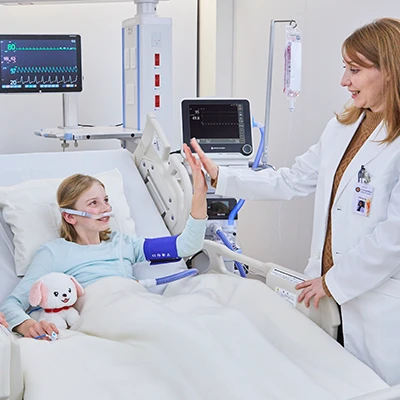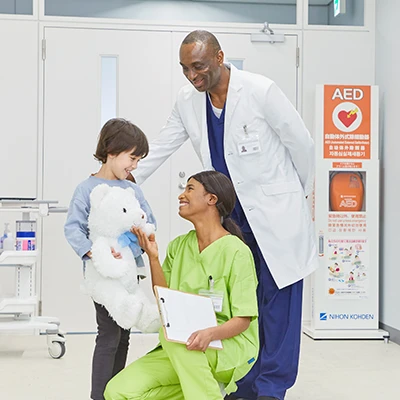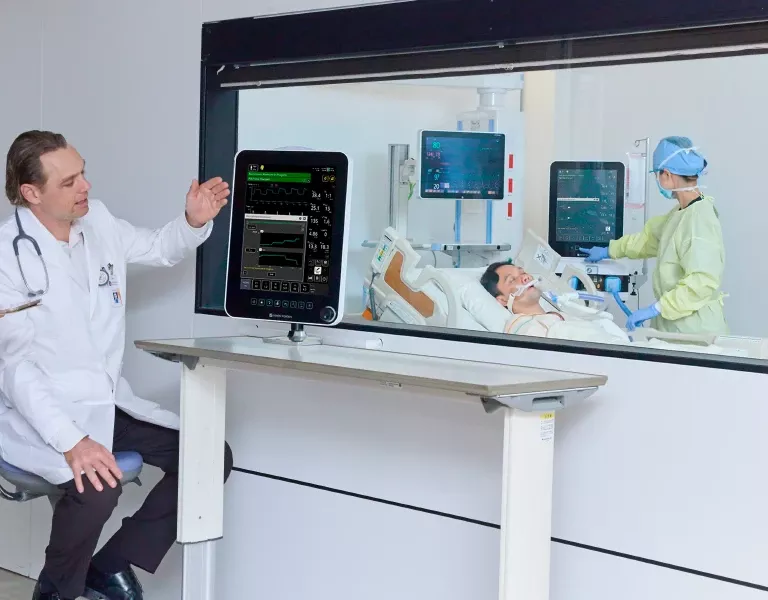
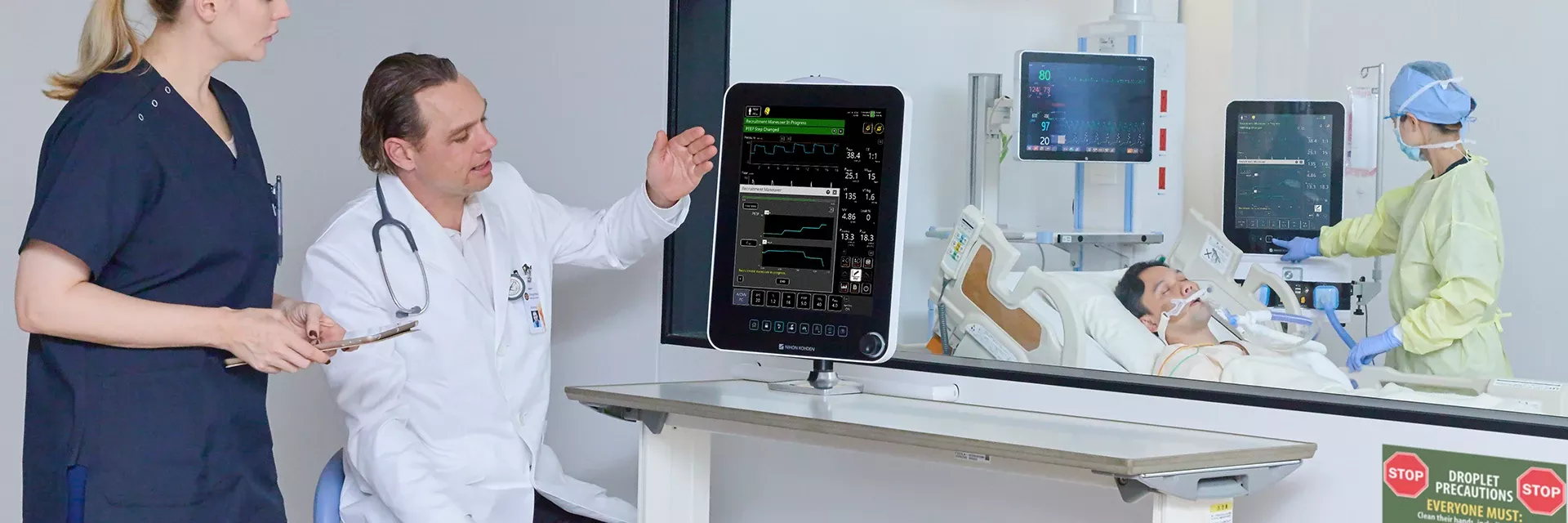
Protective Control
Protective Control
Reduce Hazards for Clinicians during COVID-19 and Other Pandemics
When a patient is placed in an isolation room due to contagious diseases, such as COVID-19 and Ebola, clinicians who are experts in the use of mechanical ventilators are not always in the isolation room. When the patient’s condition suddenly deteriorates, requiring a clinical expert’s immediate action to change the ventilator settings or to perform an urgent maneuver such as manual ventilation, the clinicians have to take 10-15 minutes to put on personal protection equipment (PPE) before they can enter the isolation room. While this process of donning and doffing PPE provides the best protection against coming in contact with and possibly spreading the biohazard that is present in the patient’s room, it delays the response to provide urgent care to the critically ill patient who is under mechanical ventilation. To avoid the delay in patient urgent care, clinicians may be in a hurry and may be unable to put on PPE carefully. This biohazard to clinicians was shown as a public health crisis during the COVID-19 pandemic.
The NKV-550 ventilator allows clinicians to connect a second graphic user interface (GUI) to the ventilator’s main unit, in addition to the primary GUI. The second GUI can be placed outside the isolation room of a contagious patient who is under mechanical ventilation, as long as the patient is within the sight of the clinician through the room’s glass window. The clinicians can view the ventilator monitors and alarms, adjust ventilation settings and alarm settings, and audio pause the alarm sound, through this second GUI.
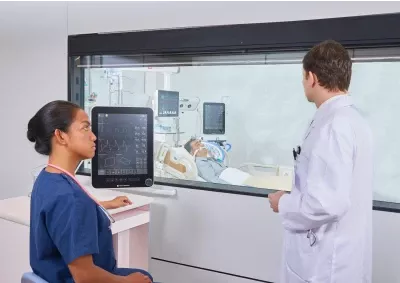
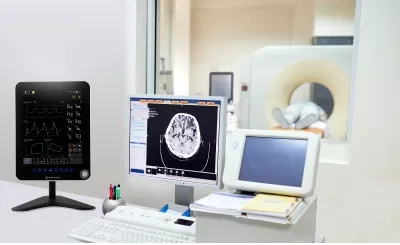
Interventional Radiological (IR) procedures have been growing year-by-year due to being less invasive, having a lower cost expenditure and facilitating faster recovery. Some patients who are undergoing IR procedures are also under mechanical ventilation. The NKV-550 ventilator with a second graphical user interface (GUI) allows the ventilator experts to stay outside of the radiological room, closely monitoring the patient’s respiratory conditions through the second GUI and through the glass window of the room at all times providing the ability to intervene immediately when needed.

